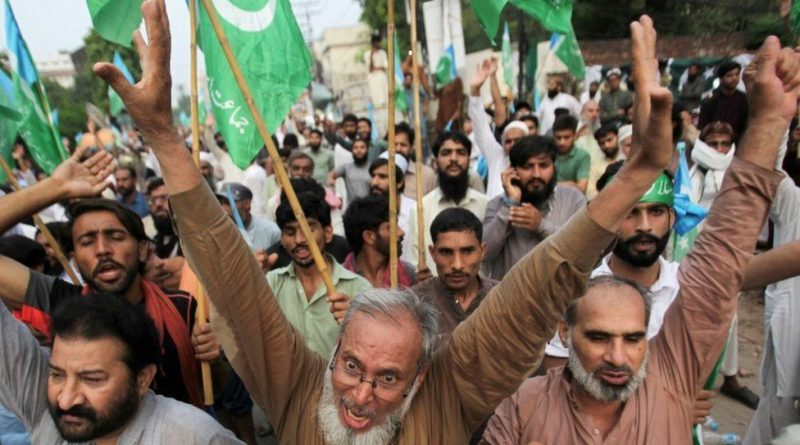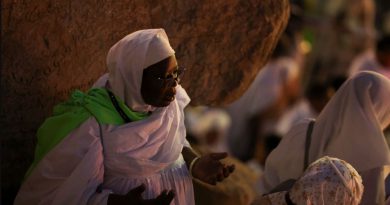Destabilizing Jammu and Kashmir: A Pre-Planned Strategy by Pakistan Government
The training provided by the ISI to the JKLF volunteers suggests a concerted effort by the Pakistani government to enhance the capabilities of militant groups operating in Jammu and Kashmir.
The destabilization of Jammu and Kashmir has long been a contentious issue, and recent claims by Noor Dahri, the executive director of Islamic Theology of Counter Terrorism in the UK, have brought attention to a purported pre-planned strategy initiated by the Pakistani government long before the Afghan war.
According to Dahri, a four-way strategy was devised in the 1980s, with implementation commencing after the Afghan War. He explores the alleged phases of this strategy and their impact on the region.
Phase 1: Training of JKLF Volunteers (1987)
According to Dahri, in 1987, volunteers from the Jammu and Kashmir Liberation Front (JKLF) underwent training conducted by Pakistan’s Inter-Services Intelligence (ISI) in four abandoned Afghan camps. After completing their training, these trained volunteers were then sent back to Kashmir.
The training provided by the ISI to the JKLF volunteers suggests a concerted effort by the Pakistani government to enhance the capabilities of militant groups operating in Jammu and Kashmir. By equipping and training these volunteers, the aim was to strengthen their capacity to carry out insurgent activities, including attacks against Indian security forces and infrastructure.
Phase 2: Systematic Islamization of Militancy (1989)
The second phase of the strategy was implemented in 1989 and aimed at the systematic Islamization of militancy in Jammu and Kashmir. This phase purportedly involved the active involvement of Jamaat-run madrasahs (Islamic schools) in the region. Students from over 500 madrasahs were reportedly recruited and inducted into the conflict, sidelining the JKLF and promoting the hardline Islamist group known as Hizbul Mujahideen, which had backing from Pakistan.
The involvement of Jamaat-run madrasahs in the alleged strategy suggests a concerted effort to imbue the conflict in Jammu and Kashmir with an Islamist character. By recruiting students from these madrasahs, the aim was to indoctrinate them with an ideology that fused religious fervor with the cause of separatism. This approach sought to galvanize a new generation of militants who were driven by religious motivations and a desire to establish an Islamic state in the region.
Phase 3: Internationalization of the Kashmir Issue (1991)
The strategy’s third phase, initiated in 1991, focused on the internationalization of the Kashmir issue. The Pakistani government aimed to draw global attention to the situation in Kashmir and sought to highlight what it claimed were human rights violations and the right to self-determination of the people in the region. This phase involved diplomatic efforts to garner international support for Pakistan’s stance, thereby increasing tensions between India and Pakistan.
During this phase, Pakistan aimed to portray itself as a champion of the Kashmiri cause and sought to gain sympathy and support from the international community. Diplomatic channels were utilized to raise awareness about the alleged human rights abuses in Jammu and Kashmir, including reports of excessive use of force, disappearances, and restrictions on civil liberties. Pakistan sought to present the conflict as a matter of self-determination and as a disputed territory requiring international intervention.
By internationalizing the Kashmir issue, Pakistan aimed to put pressure on India and garner support for its position. It sought to portray India as an oppressor and violator of human rights in the region, while positioning itself as a responsible advocate for the Kashmiri people.
Phase 4: Extending Religiously Motivated Militancy (1992)
Dahri asserts that the strategy’s final phase, initiated in 1992, aimed to extend religiously motivated militancy among the Muslim population in India. This phase allegedly involved spreading the influence of militancy beyond Jammu and Kashmir and into major Indian cities, including Mumbai, Calcutta, Hyderabad, Aligarh, Ahmedabad, Bhagalpur, among others. The objective of this phase was to create a broader network of support for the separatist cause and to further destabilize the region.
If these claims are accurate, the extension of militancy beyond Jammu and Kashmir into other parts of India would mark a significant escalation in the conflict. By expanding the reach of militancy to major cities with sizable Muslim populations, the alleged strategy aimed to create a broader base of support for the separatist cause and potentially incite unrest and violence in these areas.
The selection of cities like Mumbai, Calcutta, Hyderabad, Aligarh, Ahmedabad, and Bhagalpur suggests a deliberate targeting of locations with economic, political, or strategic significance. These cities are major centers of commerce, industry, education, and administration, and their destabilization could have far-reaching consequences for India’s stability and security.
The alleged objective of creating a broader network of support for the separatist cause indicates a desire to mobilize sympathizers and create a sense of solidarity among Muslims across India. By leveraging religious sentiments and grievances, the aim was to fuel discontent and amplify the separatist narrative, potentially leading to further violence and unrest.
Going Ahead
It is important to note that these claims made by Dahri present a specific perspective and should be subject to further verification and analysis. The situation in India, like any country, is complex, with multiple factors contributing to social and political dynamics. The Indian government has consistently taken measures to address security challenges and counter extremist ideologies, including those associated with separatist movements.



